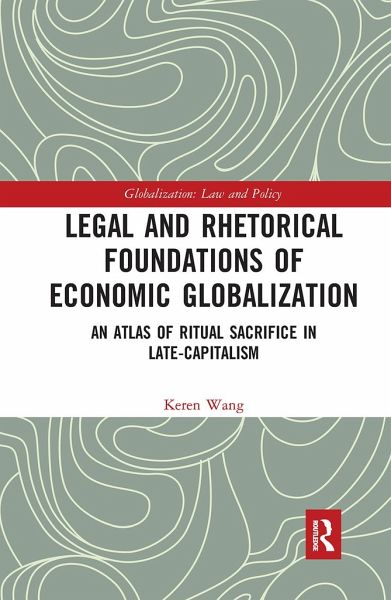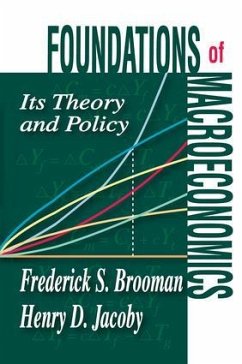
Legal and Rhetorical Foundations of Economic Globalization
An Atlas of Ritual Sacrifice in Late-Capitalism

PAYBACK Punkte
27 °P sammeln!
This book examines the subtle ways in which rhetorics of sacrifice have been re-appropriated into the workings of the global political economy in the 21st century. It presents an in-depth analysis of the ways in which ritual practices are deployed, under a diverse set of political and legal contexts, as legitimation devices in rendering exploitative structures of the prevailing political-economic system to appear inescapable, or even palatable. To this end, this work explores the deeper rhetorical and legal basis of late-capitalist governmentality by critically interrogating its mythical and r...
This book examines the subtle ways in which rhetorics of sacrifice have been re-appropriated into the workings of the global political economy in the 21st century. It presents an in-depth analysis of the ways in which ritual practices are deployed, under a diverse set of political and legal contexts, as legitimation devices in rendering exploitative structures of the prevailing political-economic system to appear inescapable, or even palatable. To this end, this work explores the deeper rhetorical and legal basis of late-capitalist governmentality by critically interrogating its mythical and ritual dimensions. The analysis gives due consideration to the contemporary incarnations of ritual sacrifice in the transnational neoliberal discourse: from those exploitative yet inescapable contractual obligations, to calendrical multi-billion dollar 'offerings' to the insatiable needs of 'too-big-to-fail' corporations. The first part of the book provides a working interpretative framework for understanding the politics of ritual sacrifice - one that not only accommodates multidisciplinary, interdisciplinary knowledge of ritual practices, but that can also be employed in the integrated analysis of sacrificial rituals as political rhetoric under divergent historical and societal contexts. The second conducts a series of case studies that cut across the wide variability of ritual public takings in late-capitalism. The book concludes by highlighting several key common doctrines of public ritual sacrifice which¿have been¿broadly observed in its case studies. These common doctrines tend to reflect the rhetorical and legal foundations for public takings under hegemonic market-driven governance. They define 'appropriate and proper' occasions for suspending pre-existing legal protections to regularize otherwise transgressive transfers of rights and possessions for the 'greater good' of the economic order.














